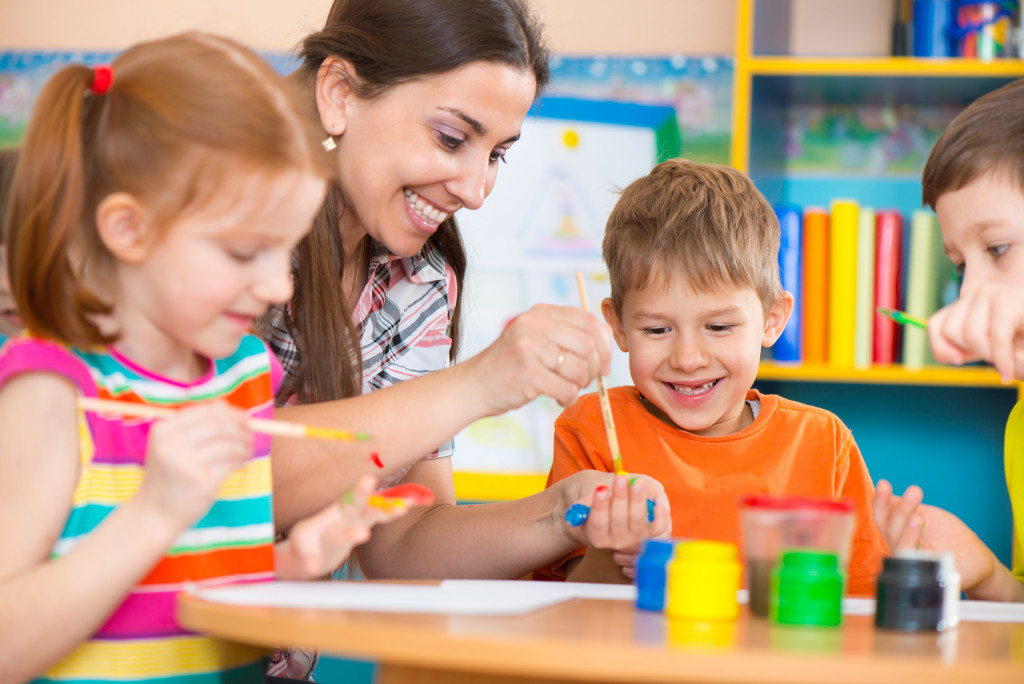- Identifying your child’s learning style can benefit their education greatly.
- Different learning styles include traditional classroom learning, Montessori preschool education, and play-based learning.
- Tailoring teaching methods to match your child’s preferred learning style can lead to better retention of information.
- Traditional classroom learning provides structure and social interaction.
- Montessori education promotes self-directed learning and independence.
Preschool education is a crucial stepping stone in your child’s early development. It lays the foundation for their future learning journey, so choosing the right learning approach is essential. This blog post will explore different learning methods tailored to your little one’s education.
Why Kids Have Different Learning Styles
Each child has a unique way of learning, and it is crucial to identify their interests to facilitate effective learning. Children are born with different personalities and abilities, so it’s natural that they also have different learning styles. These individual differences can be observed from an early age, and as parents or educators, we must recognize them to support our children better.
The Importance of Identifying Learning Styles
Identifying your child’s learning style can significantly benefit their education. When you understand how they learn best, you can tailor teaching methods and activities to match their needs. This can lead to a more engaging learning experience for your child, ultimately resulting in better retention of information.
Moreover, when children are taught using their preferred learning style, they tend to be more motivated and confident in their abilities. This positive attitude towards learning can significantly impact their overall academic performance.
Different Types of Learning Styles
There are several different learning styles, each with its characteristics. Let’s take a look at some of the most common ones:
Traditional Classroom Learning

When you think about preschool, you might picture a traditional classroom setting. In this environment, your child will be in the company of other children their age, guided by a trained teacher. Formal classroom learning provides a structured and organized approach to early education.
Your child will follow a daily routine in these classrooms, engaging in activities such as circle time, storytime, and art projects. This structured approach helps them develop a sense of performance and order, essential skills for future learning. Moreover, interaction with other children fosters social development, teaching them to share, cooperate, and communicate effectively.
Montessori Preschool Education
Montessori preschool education is a method that encourages children to become independent, self-motivated learners from a very early age. In a Montessori classroom, your child won’t find the traditional rows of desks or a teacher standing at the front. Instead, they’ll discover an environment that caters to their natural curiosity and desire to explore.
One key aspect of Montessori education is self-directed learning. In this setting, your child can choose their activities and work at their own pace. The classroom is filled with specially designed materials that are engaging and educational. These materials are intended to be self-correcting, meaning your child can learn independently and gain a sense of accomplishment as they master each task.
Play-Based Learning

Play is a child’s natural way of exploring and making sense of the world. Play-based learning is a method that taps into this innate curiosity and uses it as a powerful educational tool. Play-based learning may be the ideal choice if you want your child to learn through fun and creativity.
Children are encouraged to learn through imaginative and open-ended play in a play-based preschool environment. They can choose their activities and engage in games and explorations that capture their interest. Whether building a castle with blocks, dressing up as their favorite character, or creating a masterpiece with art supplies, play is at the core of their daily experiences.
Play-based learning fosters creativity, problem-solving skills, and critical thinking. Children engage in various activities and learn to adapt, innovate, and collaborate with their peers. Through play, they develop language, social, and emotional intelligence while having a great time.
Reggio Emilia Approach
The Reggio Emilia approach is a distinct educational philosophy that emphasizes the importance of child-driven learning and creativity. Originating in the Italian town of Reggio Emilia, this approach has gained recognition for its innovative and child-centric methodology.
In a Reggio Emilia preschool, your child will encounter an environment designed to spark curiosity and creativity. Unlike traditional classrooms with pre-defined lesson plans, this approach encourages child-driven projects. Children are allowed to explore topics that intrigue them, allowing their natural interests to guide their learning.
Wrapping Up
Regardless of your chosen method, remember that the key to effective learning is understanding your child’s unique way of learning and tailoring their education accordingly. By doing so, you can ensure that your child has a positive and engaging early learning experience that sets them up for success in the future.

